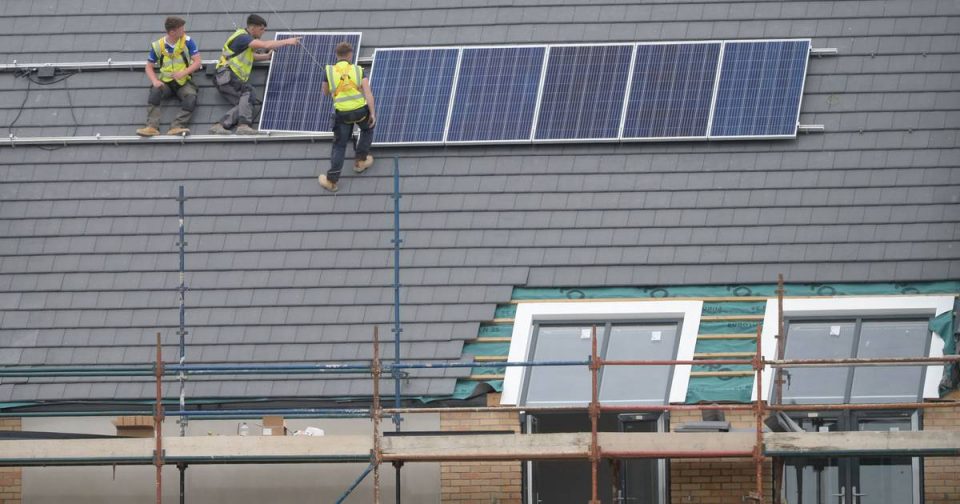The national retrofitting programme is facing headwinds from inflation and supply chain constraints, an Oireachtas committee has been told.
The Oireachtas environment committee was told on Tuesday morning that while some 36,000 applications have been made across retrofit schemes so far this year, “unprecedented times” mean that the national residential retrofit plan is “experiencing many of the same challenges facing the wider economy, namely inflation and supply chain constraints in terms of labour and materials.”
Margie McCarthy, Sustainable Energy Authority Of Ireland (SEAI) director of research and policy insights said anecdotally the SEAI has been given information that suggests some supply chain constraints for materials which occurred after Covid-19 have eased in recent months.
However, she said that “many suppliers are reporting difficulties in securing appropriate labour supply” and that “the significant levels of inflation reported for some building products related to retrofit is a cause for concern”.
The committee was told that SEAI is “acutely aware of the potential to further inflate specific markets by simply increasing grant levels and have focused therefore on attracitng more contractors to participate on our schemes”.
[ Retrofitting your home: ‘The heat is retained for up to three days’ ]
The SEAI has been given a budget allocation of €267.2 million in 2022, more than half its annual funding. The committee was told that 12 suppliers have registered on the One Stop Shop system set up for consumers to source providers for home retrofit projects, all of whom are reporting strong pipelines of work.
So far this year, 36,000 applications have been progressed, she said, equating to some 28,800 homes being retrofitted. Over 3,200 home upgrades have been made through the warmer homes scheme.
District heating
The SEAI also updated the committee on the use of district heating systems. Ireland must deliver low-carbon district heating systems at a “faster pace” than elsewhere, the Oireachtas committee was told.
The committee was told up to half of Irish heat demand could be met through large district heating systems, which use runoff heat from industrial and other producers to provide heat to homes and business.
The SEAI told the committee that energy emissions increased by 5.4 per cent and the share of renewable energy used to provide heat remains under 7 per cent.
“Heat is responsible for a quarter of our emissions, and its demand is 94 per cent derived from fossil fuels,” Ms McCarthy said. She told the committee that the SEAI “urgently need further actions and investments to support the widespread implementation of district heating”.
“This is a proven technology which offers the benefit of decarbonisation and energy resilience. In many cases, our mainland European neighbours who use district heating at scale have not experienced the price fluctuations currently in play,” Ms McCarthy told the committee, adding that Ireland’s challenges “is to deliver this at a faster pace than experienced elsewhere”.
“We cannot afford to continue to support fossil fuel heating in our homes and businesses,” Margie McCarthy, SEAI director of research and policy insights Ms McCarthy told the committee. “A clear alternative must be prioritised to support this transition.”
The Department of Environment, Climate and Communications has established a working group to report on the technology by the end of the year.


